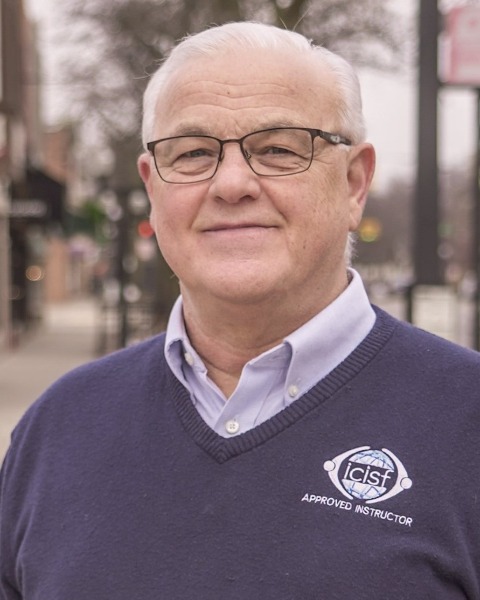60 Minute Main Congress Breakout Sessions
A5 - Addressing the Stigma of Mental Wellness in Emergency Services
Wednesday, May 3, 2023
10:30am - 11:30am EST

David R. Edwards
President
Call for Backup
NEWPORT, Michigan, United States
There are a variety of incidents that first responders experience in the course of their work that can have an impact on their mental and emotional well-being. The truth is, our first responders become the receptacle for a lot of garbage that is dumped on them throughout the course of their career, and those working in emergency services need to become better at managing the mental and emotional clutter created by all that trash. The truth is, they are usually not very good at doing that. What would cause a person who is struggling so greatly just to keep packing things down further instead of taking out the proverbial trash when it needs to go? To answer that question, we usually use the word stigma. This presentation addresses a number of the root causes of that stigma, and advocates for solutions that will result in lasting cultural change to enhance the well-being of emergency services personnel.
*Profession Specific CEs:
This presentation is approved for 1.0 CE Credits by The Anne Arundel County Mental Health Agency, Inc. (AACMHA) as an approved sponsor of the Maryland Board of Social Work Examiners for continuing education credits for licensed social workers in Maryland.
This presentation is approved for 1 PDH from EAPA- Employee Assistance Professionals Association.
This presentation is approved for ALS NCCP Individual 1.0 Hours by Maryland Institute for Emergency Medical Services Systems' Office of EMS Clinician Services.
This presentation is approved for BLS-L (Local Option) 1.0 Hours by Maryland Institute for Emergency Medical Services Systems' Office of EMS Clinician Services.
1 CE Credits for NAADAC, This course has been approved by International Critical Incident Stress Foundation (ICISF), as a NAADAC Approved Education Provider, for educational credits. NAADAC Provider # 87914, International Critical Incident Stress Foundation (ICISF), is responsible for all aspects of the programing.
*Review ICISF World Congress 17 CE website page for additional requirements.
*Profession Specific CEs:
This presentation is approved for 1.0 CE Credits by The Anne Arundel County Mental Health Agency, Inc. (AACMHA) as an approved sponsor of the Maryland Board of Social Work Examiners for continuing education credits for licensed social workers in Maryland.
This presentation is approved for 1 PDH from EAPA- Employee Assistance Professionals Association.
This presentation is approved for ALS NCCP Individual 1.0 Hours by Maryland Institute for Emergency Medical Services Systems' Office of EMS Clinician Services.
This presentation is approved for BLS-L (Local Option) 1.0 Hours by Maryland Institute for Emergency Medical Services Systems' Office of EMS Clinician Services.
1 CE Credits for NAADAC, This course has been approved by International Critical Incident Stress Foundation (ICISF), as a NAADAC Approved Education Provider, for educational credits. NAADAC Provider # 87914, International Critical Incident Stress Foundation (ICISF), is responsible for all aspects of the programing.
*Review ICISF World Congress 17 CE website page for additional requirements.
Learning Objectives:
- 1. Define the stress associated with working in emergency services
- 2. Identify ways in which the emergency services culture contributes to the stigma
- 3. Describe strategies that may be used managing stress and creating cultural change
